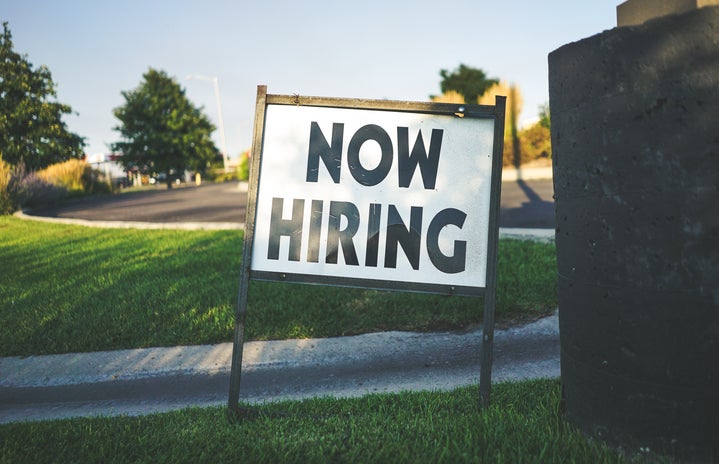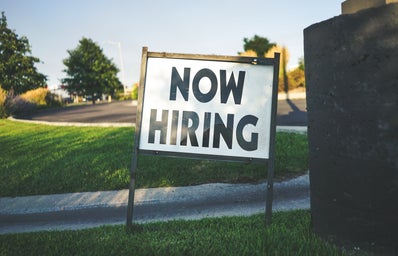Let’s face it, interviews are scary. There is the anxiety of sitting in the waiting room for the interviewer to greet you, then there are the anxiety inducing questions, and then the dreaded “do you have any questions” question and you can’t think of a single one. Whether it be nailing an internship or landing your dream job, here are ten tips to help you have a better interview.
1. Confirm the location and time.
So the week of the interview is fast approaching and the first step to success is to confirm the time and location of the interview. E-mail the person you are interviewing and confirm the time and location two to three days before the interview. This will give you a piece of mind that your interview is still a go, while it demonstrates to the interviewer your responsibility and organizational skills.
Also, the day before the interview or at any point during the week of your interview, do a practice drive. Time how long it takes you to get there, look at the parking options, and plan out the time you need to get to where you need to go and bring any other materials (money) you may need for parking meters or parking garages. Same also goes for if the interview is in a big city like New York or Boston, time how long the subway ride may take or where you need to walk.
2. Arrive 5 minutes early.
Just 5 minutes; no more, no less. If you arrive before that 5 minute mark, the interviewer will not be ready for you and it may make the interviewer feel like they need to rush what they are currently doing to come and see you. You don’t want to seem overeager. On the other hand, you don’t want to show up late to an interview. Showing up after the agreed upon time is simply unprofessional. However, if you are running late for an emergency such as your car broke down or something of that nature, call the interviewer as soon as possible.
3. Dress to impress.
Be sure to dress professionally. Nothing revealing or flashy. Below are some suggestions regarding proper lengths and colors for professional dress for an interview. Don’t forget the lint roller!
Pants/Skirts – Fabrics should be crisp and dark colored. There should be no wrinkles, nor should they be tight. Fitted is fine, since it does give off a polished look. Regarding the length of the skirt, your skirt should at least hit the knee while standing. MAXI skirts are NOT okay. Also, while wearing skirts, stockings are a good idea to add a more conservative and classic look.
Shirt/Sweaters – No bright colors or shimmery fabrics. The fit should not be tight, but relaxed. Cleavage is also unacceptable. Make sure the shirt is pressed if need be and is crisp. Tank tops of any kinds are unacceptable, a shirt with a sleeve is essential. It is best if shirts are worn with a blazer or sweater to add that polished look.
Shoes – Should be a neutral color. Flats or heels are fine, but heels shouldn’t be more than two inches.
Jewelry – Keep it simple. A statement piece is fine, but it shouldn’t be bright or neon colored. No big hoops or dangle earrings.
Cosmetics – When it comes to makeup, keep it simple.
4. The Handshake
Handshakes are arguably one of the most important part of the interview. Gone are the days where women are expected to just give the interviewer a limp, half-handed handshake. So don’t be afraid to firmly grasp the interviewer’s hand and give them a few shakes. Handshakes play a huge factor in first impressions. A firm, assertive handshake can lead to a positive first impression.
For those of you who are worried about sweaty palms or clammy hands, the best advice I can give you is to have a tissue or napkin in your bag and give them a quick little wipe. Also, avoid holding any drink in your right hand if you have to shake someone’s hand.
5. Research the company
Without a doubt, at some point in your interview you will probably be asked about the company you are interviewing for. Be sure to visit their website and learn about the company. Things to focus on would be the purpose of the company, what they do, the positions available, and their history. Interviewers like to see you know about what they do.
6. Look up some practice questions.
Before going into the interview it is important to practice answers to questions you may be asked. The best way to do that is to set up a mock interview with the Career Center here on campus. You can also ask your friends to ask you common interview questions, so you can practice answering them.
7. Bring writing materials and questions.
Since you won’t be on your phone during the interview be sure to bring a notepad to take down any relevant information. Also, be sure to bring a handful of questions to ask the interviewer at the end, it really shows the interviewer that you are interested in the company. Lastly, don’t forget hard copies of your resume and references.
8. Be nice to everyone you meet in the office and TURN OFF YOUR PHONE!
Once you arrive, be nothing but pleasant to everyone you meet, even if they brush you off because you aren’t “one of them” or some nonsense like that. You don’t know what sway the people you meet may have on the interviewer, and you wouldn’t want them getting the wrong idea about you. So bring your best attitude and smile.
ALSO, it is important to note that once you arrive at the location, TURN OFF YOUR PHONE! Don’t just put it on vibrate, TURN IT OFF! And do not pull it out until you leave the office. Also, be sure to have all important information on a business card, so you don’t have to pull out your phone.
9. How to answer questions
Be sure to answer all questions throughly and completely. Don’t leave any question feeling like you didn’t give a strong answer. A tip to help you come up with the best answer is to wait about three seconds before answering the question. Three seconds may sound like a really short amount of time, however it’s more than enough time for you to gather your thoughts. Also, if you don’t understand the question, don’t be afraid to ask for it to be repeated. Having the interviewer repeat the question could allow you to hear the question in a different way.
10. Be yourself
And last but certainly not least, make sure you show your personality. In an interview, you will without a doubt have a chance to showcase your personality. Don’t be afraid to share an experience or something else that is uniquely you.

